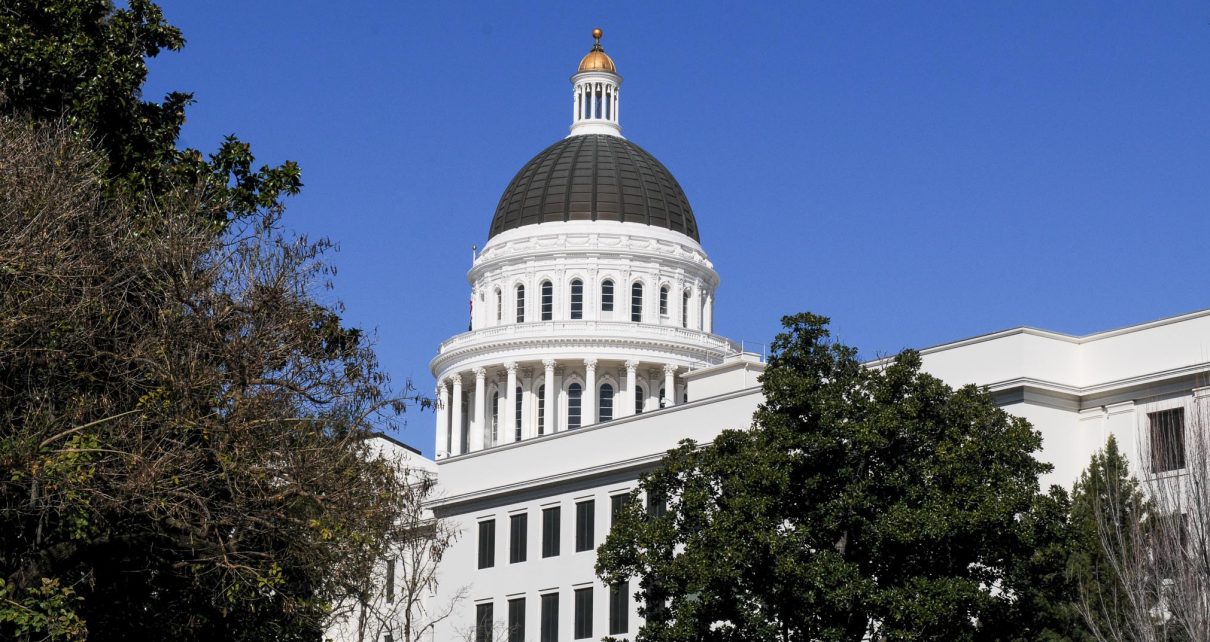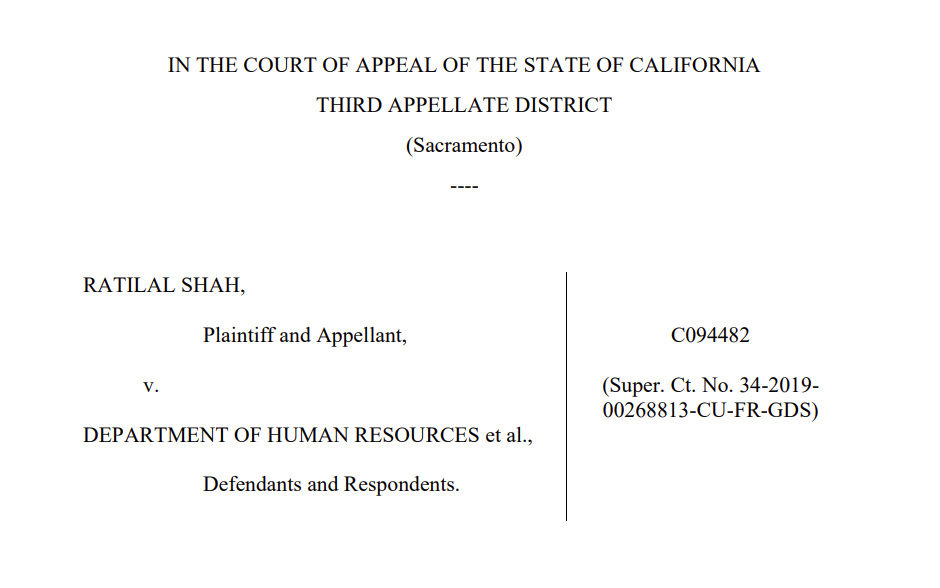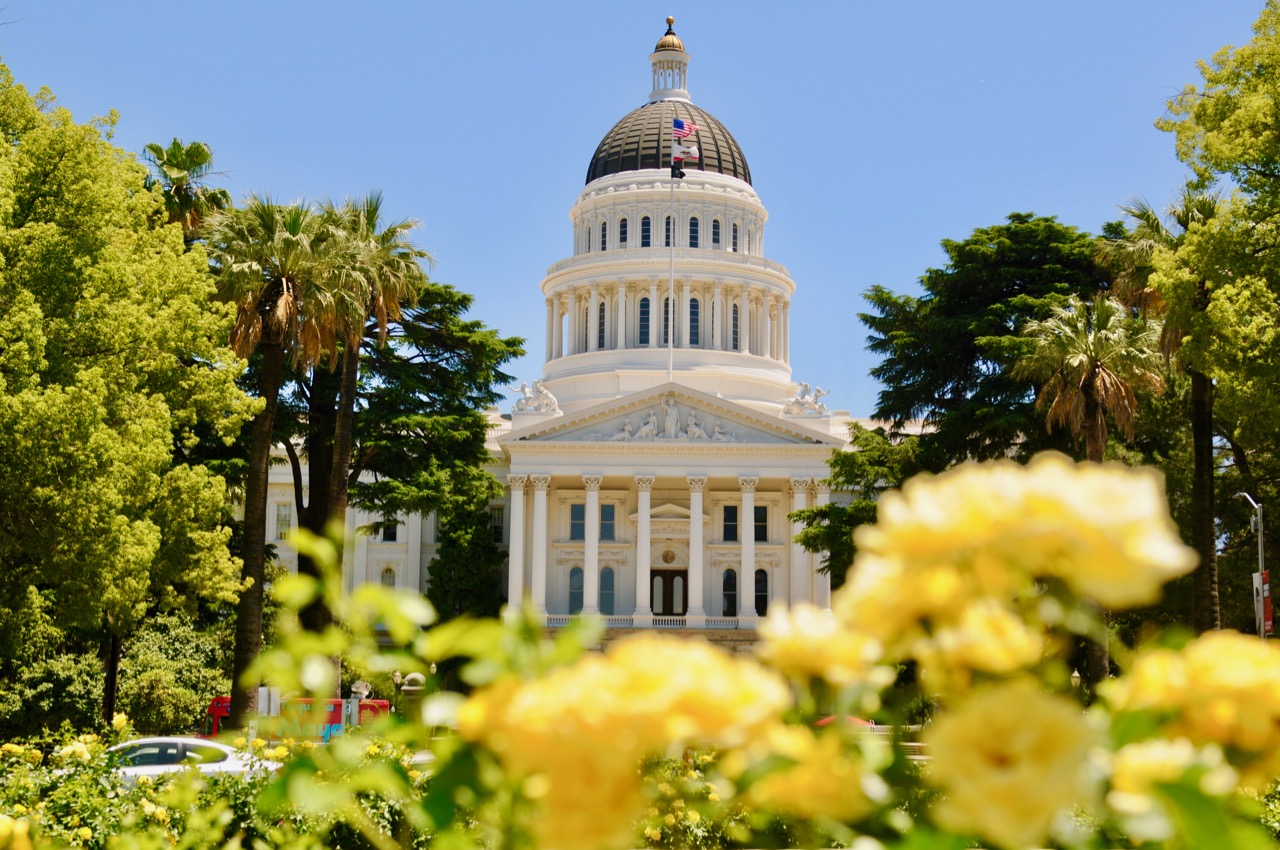
California State Capitol. (Photo: Kevin Sanders for California Globe)
State Employee Who Saved California Millions Loses Compensation Case Against CalHR
CalHR challenged the case over the statute of limitations
By Evan Symon, June 26, 2023 1:06 pm
New state appellate court documents unveiled over the weekend found that a former California Department of Transportation Employee, whose suggestions have saved the state millions of dollars, lost a court case earlier this month against the California Department of Human Resources (CalHR) over proper compensation due to his claim coming after the statute of limitations.
The case dates back to the mid 2010’s. According to court documents, Ratilal Shah, a California Department of Transportation employee, made 3 cost-saving suggestions via the State’s Employee Suggestion Program. The program, which is for all state employees, gives those with used suggestions 20% of how much was ultimately saved by the state, with a cap of $50,000 per suggestion. As Shah’s suggestions had run into millions saved by the state, Shah was awarded $50,000 for each of his 3 suggestions, coming to a total of $150,000.
However, the State Merit Award Board later reevaluated these awards in 2018 and subsequently denied Shah the $150,000. In October 2018, Shah had appealed the decision, but the Board upheld it. A follow-up claim against the state in April 2019 similarly brought nothing. Later that year, in November, Shah finally filed a suit against CalHR, the overseeing agency of the Employee Suggestion Program. In Shah v. Department of Human Resources, Shah claimed that the state had breach of contract, unjust enrichment, and misappropriation of trade secrets.
Rather than challenge those claims directly, however, CalHR instead challenged the case over the statute of limitations. In a demurrer, CalHR said that Shah’s claims are barred by a one-year limitation period by California’s Government Code, with Shah having waited 13 months between initial actions in October 2018 and his lawsuit filing in November 2019. While Shah brought forth that he had two years to file under California’s Government Claims Act, the court ruled in CalHR’s favor, agreeing with the one year limitation and dismissing his claims. Shah Appealed, saying that the initial court got the wrong limitations period.

The California Appeals Court looked at the case again earlier this year and recently gave their final ruling – that CalHR was still correct, with the one year limitation standing and Shah being unable to collect any compensation for his ideas due to the Board ruling officially standing.
While the case is not exactly unique within the California courts system, legal experts told the Globe Monday that the case gives a not too often seen look into California’s Employee Suggestion Program and how such awards are evaluated.
“The case doesn’t give some details, like why Shah was denied the awards in the first place or why he waited so long to get legal representation, but it does show how far the state will go on even smaller matters,” explained lawyer Juan Ferrel to the Globe Monday. “If anything, the case should be a good reason why, if you’re in the same shoes, you need to at least consult a lawyer early on in matters like this. There are different specializations, with not all working on state or federal cases. But they should know about different limitations and how long you would have time to file before it runs out.
“And the state played it smart. Rather than argue against Shah’s three claims on his cash awards being denied by the Board, like breach of contract, they simply found that he had filed the suit too late and asked for the case to be demurred. And you know, I don’t know all the details here, but it can appear that the state screwed over an employee by denying them a lot of money for saving them millions of dollars. But we also didn’t get far enough into the case to find out why the awards had been denied. We don’t know the full details. What we do know is that Shah had waited too long in filing a suit. That’s the lesson here. Consult early and don’t rely on HR, because they are there to protect the company first and foremost.”
Since the ruling, CalHR has yet to comment on the case.
- Trump Selects CA Lawyer Harmeet Dhillon As Assistant Attorney General For Civil Rights - December 11, 2024
- San Francisco Cruise Robotaxi Folds Following $10 Billion In Losses - December 11, 2024
- New Information Shows UnitedHealthcare CEO’s Assassin Has California Ties - December 10, 2024




What this means is that it can be tried as FALSE ADVERTISEMENT case.
As the state failed to abide by their implied contract:
The program, which is for all state employees, gives those with used suggestions 20% of how much was ultimately saved by the state, with a cap of $50,000 per suggestion.
The downstream effect is this will be the example that any suggestion or anything said by the state may not be truthful or lived up to. The state taxpayers will suffer from this as savings help everyone – now people will be less motivated to provide anything because it may adversely affect them in their job which may call out a negative on superiors.
$150,000 is the coffee budget for Assembly, the little guy who save the state millions gets the shaft once again.
When I read the article the first red flag I noticed was that CalHR refused to fulfill its obligation to pay Ratilal Shah what was owed to him by the State in a timely manner. It doesn’t matter that Mr. Shah missed the filing date to avoid the statute of limitations since the payout by the CalHR should have been conducted in a timely manner to prevent future litigation in the first place. I would advise Mr. Shah to take his case to the next level whether that be to the Ninth Circuit Court of Appeals, the California State Supreme Court and if those attempts fail, to the United States Supreme Court. California courts are mainly controlled by progressive Democrats, so they might rule against Mr. Shah. But the United States Supreme Court now has a constitutionalist majority that would undoubtedly be fair-minded in its ruling. Mr. Shah is being treated unfairly and CalHR is to blame. There is a two-tier justice system in place in California and in other Blue states controlled by progressive Democrats in my opinion. And it’s high time ‘We The People’ take the initiative to restore a semblance of sanity and respectability to our judicial system and to our Federal, State, and local governments. The power to change is provided at the ballot box. You get what you vote for. Vote out the bad actors and vote in people who actually care about the little guy. Nuff’ said.